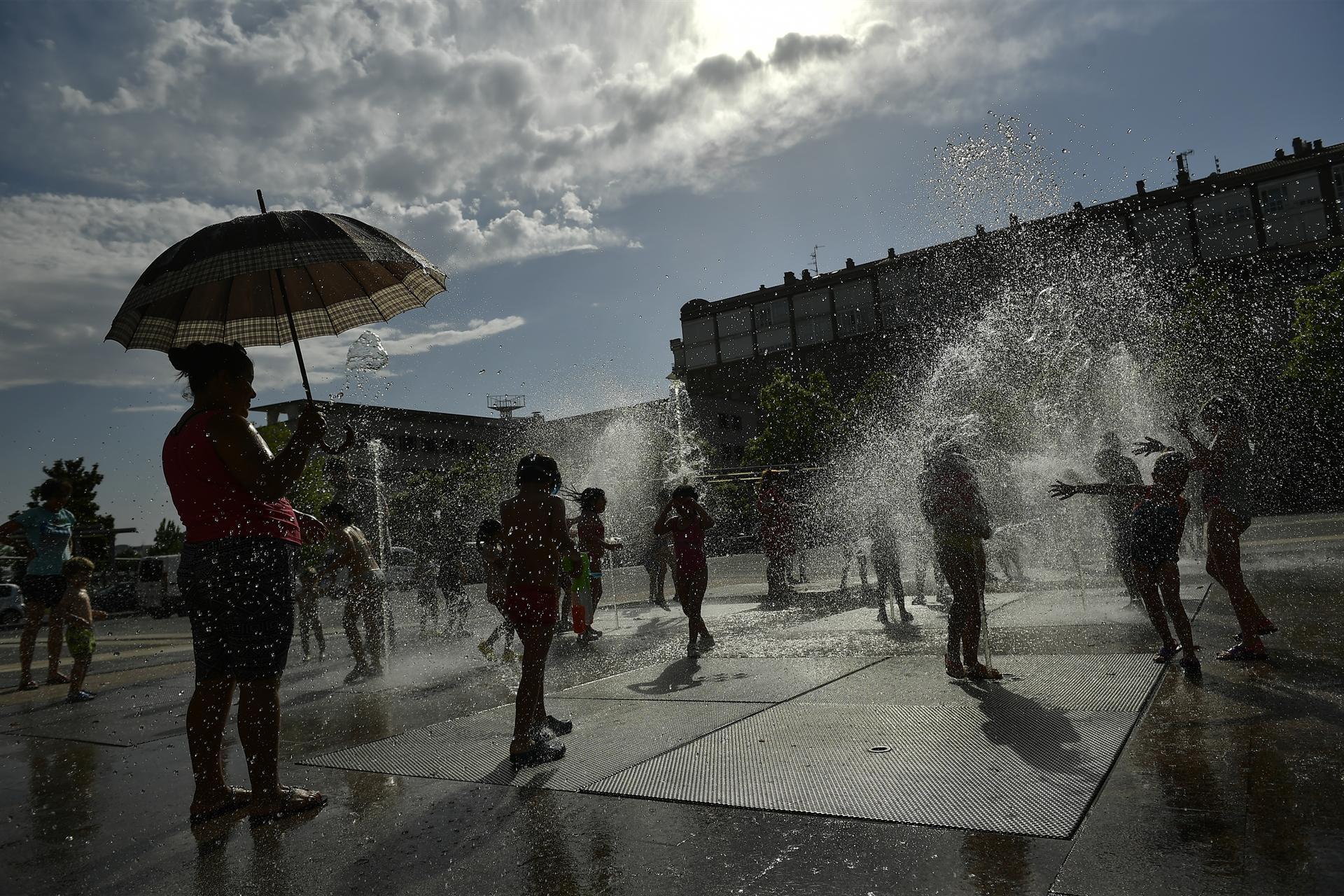Europe set to sizzle again as deadly heatwave continues
PARIS- Agence France-Presse

Europe was bracing itself for a sweltering on June 29 as a deadly heatwave across the continent has sparked record-breaking temperatures, large blazes and pollution peaks.
The Meteo-France weather service lifted its red warning but forecast a "very hot day" across a large central band of the country, with the mercury expected to rise to 42 degrees Celsius (108 degrees Fahrenheit) in some parts.
With France, Spain, Italy and parts of central Europe hard hit by all-time highest temperatures, officials pleaded with people to take precautions.
France’s new record temperature of 45.9 degrees C was registered on June 28 in Gallargues-le-Montueux, a village in the southern department of Gard near Montpellier, breaking successive records set earlier in the day, Meteo-France told AFP.
This is the same area where the previous high of 44.1 degrees C was set in August 2003 since records began at the turn of the 20th century.
The weather service said the new high was comparable to August temperatures in California’s Death Valley.
Earlier Friday, the mercury rose above 44 degrees C in the southeastern French town of Carpentras. The town was deserted, with cafe owners contemplating empty terraces which would normally be packed.
"We have never seen this!" one exclaimed.
France is just the seventh European country to register a plus 45-degree temperature, along with Bulgaria, Portugal, Italy, Spain, Greece and North Macedonia, Meteo France said.
The hot spell has also sparked large blazes including in Spain, where fire fighters on Saturday fought fresh wildfires in strong winds and blistering heat just as they had managed to finally contain another inferno after nearly 72 hours.
Meteorologists blame a blast of hot air from northern Africa for the scorching early European summer, but the heat is due to die down from June 30.
The heat has already claimed several lives, including a 17-year-old harvest worker in Spain and a 72-year-old homeless man in Italy.
Heat-related deaths have also been reported in Germany and France, mainly among the elderly.
France remains haunted by the memory of the devastating heatwave of August 2003 which exposed the shortcomings of emergency services at the height of the summer holidays and during which nearly 15,000 people were estimated to have died.
"I want to appeal to the sense of responsibility of citizens- there are avoidable deaths in every heatwave," French Prime Minister Edouard Philippe said.
Scientists warn that global warming linked to human fossil fuel use could make such scorchers more frequent.
In Germany- where four people have died so far in bathing accidents -- the national weather service said temperatures were more than four degrees higher in June than the average.
In France, where four people have also drowned in bathing accidents, Health Minister Agnes Buzyn lamented that despite a barrage of public health warnings, some parents were still leaving their children in hot cars and joggers were out exercising in the midday heat.
A Syrian child was seriously injured north of Paris Thursday after being catapulted into the air by water gushing from an open fire hydrant and then crashing to the ground.
The incident occurred in the multi-ethnic Saint-Denis neighbourhood where "uncapping" hydrants has long been used as a way to cool off.
In Spain, a fire that started Friday evening in the central town of Almorox has already burnt at least 1,600 hectares (4,000 acres), spilling over into the Madrid region and forcing the evacuation of a village, emergency services said.
However, a major blaze in the northeastern region of Catalonia had finally been contained and "was in the process of being stabilised," the regional government said in a statement.
Catalonia’s forest service said the fire likely began when an "improperly managed" pile of manure at a chicken farm spontaneously combusted in the extreme heat.
Hundreds of firefighters backed by troops and aerial water bombers were hampered by roasting 44-degree temperatures and very low humidity.
Meanwhile, blazes have also ravaged more than 600 hectares of land and several homes in France.
The stifling temperatures have caused air quality to nosedive in some European cities, prompting local authorities to take anti-pollution measures.
















